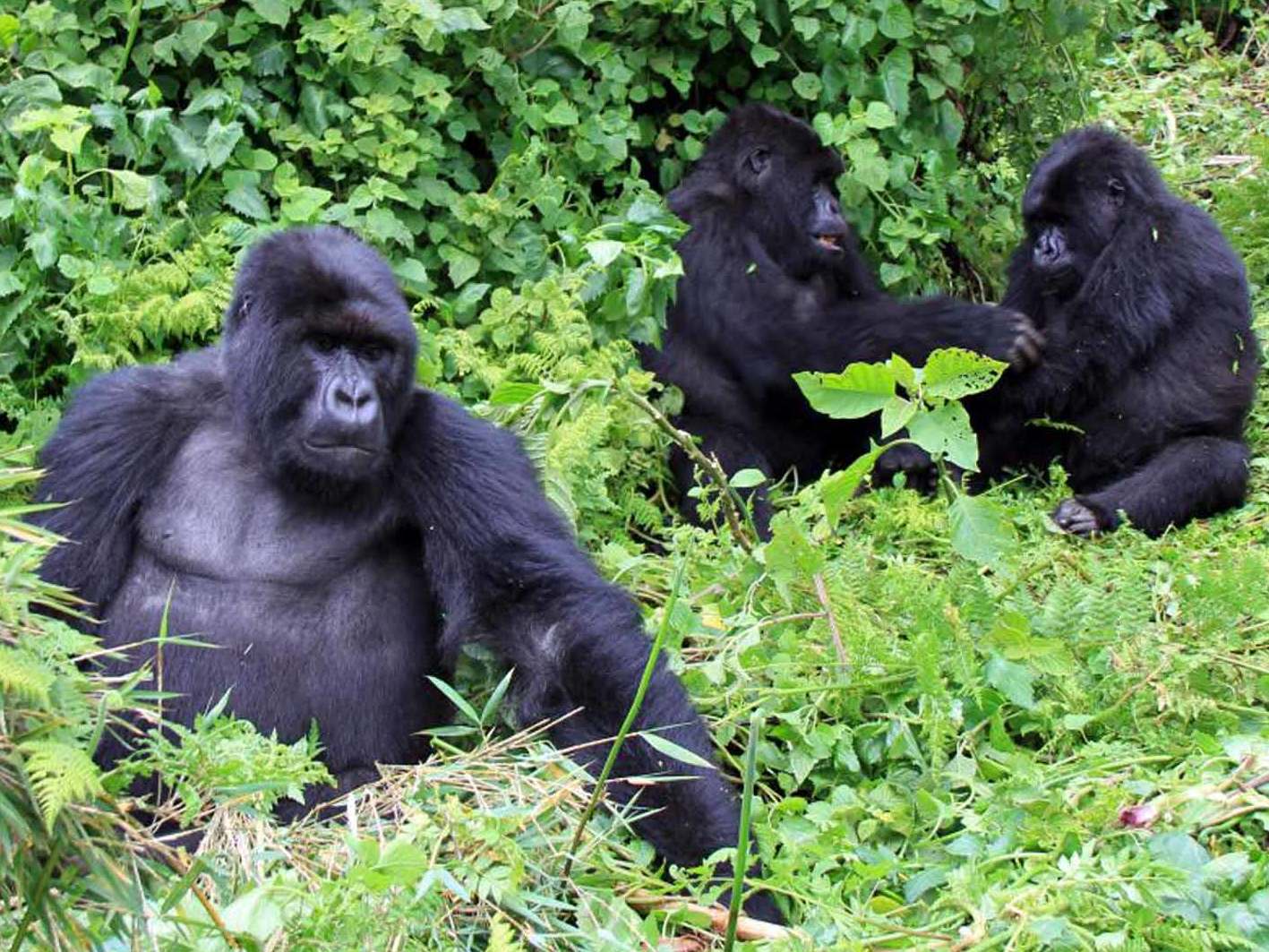Coronavirus: sharp rise in poaching of Africa’s mountain gorillas as people hunt more bushmeat
Hunting of great apes has spiralled as cash flows from tourism have collapsed, as Jane Dalton reports

The economic impact of Covid-19 has caused a spike in poaching of the world’s endangered mountain gorillas, African park authorities say.
People living in and near the Virunga national park in Democratic Republic of Congo have turned to hunting for bushmeat as jobs have been lost and food prices have risen.
At the same time, a collapse in tourism revenues in Congo and Uganda has reduced the funds available to protect the great apes and their habitats.
A perception that rangers have had to cut patrols in order to shield from the virus has also fuelled poaching, according to conservation chiefs.
Congo’s Virunga National Park, home to about a third of the world’s mountain gorillas and covering 3,000 sq miles, was closed to tourists in March to help staunch the spread of the coronavirus to both the local community and the great apes. But hunters have been cashing in on the lack of human activity to trap the animals.
“There has been an increase in the number of people going into the forest to lay those snares,” said Emmanuel De Merode, director of Virunga National Park.
Poaching of gorillas in neighbouring Uganda, which is home to more than half the world’s mountain gorilla population, has also shot up.
The Uganda Wildlife Authority recorded 367 poaching cases in its parks between February and May this year, more than double the number of the same period last year.
Even that may be an underestimate. Charles Tumwesigye, the agency’s deputy director of field operations, told National Geographic that the real numbers could be higher because dead animals and traps may be taken away before authorities detect the activity.
In Bwindi Impenetrable National Park, on the border with Congo, 822 snares were found during March to April, compared to 21 at that time last year, according to Unesco.
Wildlife tourism, which creates thousands of jobs and helps deter poachers in Uganda, financed anti-poaching work before the lockdown. Foreign visitors used to pay $600 (£475) for a permit to observe gorillas with a guide.
But Mr Tumwesigye says it’s now easier for poachers to spot when rangers leave an area.
“With staff not sure of whether they will continue getting salary without tourism, I think the morale and zeal to combat poaching went low,” he says. The lockdown also has led some people to believe – wrongly – that rangers are no longer patrolling parks, emboldening them to poach animals, he said.
Last month, antelope poachers admitted spearing a 25-year-old silverback gorilla – the first to be killed in Uganda in nine years.
In April, 12 rangers and five other people were killed in Virunga National Park. That compares to 150 rangers being killed in the 14 years since 2006.
Since the outbreak of the pandemic, conservationists have been worried about great apes contracting the virus, which they fear could devastate their populations.
Virunga, established in 1925 as Africa’s first national park and now a Unesco World Heritage Site, has long been vulnerable as it is in a volatile part of eastern Congo.
Join our commenting forum
Join thought-provoking conversations, follow other Independent readers and see their replies
Comments